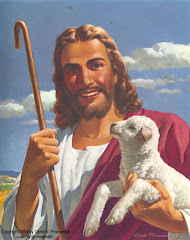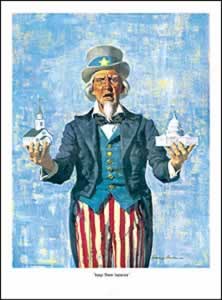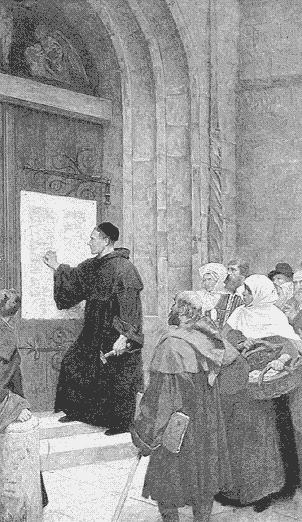Kennedy assured Americans that his decisions as president would be based on the public good, not sectarian doctrine.
“I am not the Catholic candidate for President,” he said. “I am the Democratic Party’s candidate for President who happens also to be Catholic. I do not speak for my church on public matters – and the church does not speak for me.”
He continued, “Whatever issue may come before me as President — on birth control, divorce, censorship, gambling or any other subject — I will make my decision in accordance with these views, in accordance with what my conscience tells me to be the national interest, and without regard to outside religious pressures or dictates.”
Here at Americans United we think President Kennedy’s speech was right on target. Of course, not everyone shares our opinion. Even half a century later, there are plenty of people still complaining about it.
In March of this year, speaking at Houston Baptist University, Archbishop Charles J. Chaput of Denver said the Kennedy speech was “sincere, compelling, articulate – and wrong.”
Chaput explained that Kennedy was “not wrong about the patriotism of Catholics, but wrong about American history and very wrong about the role of religious faith in our nation’s life. And he wasn’t merely ‘wrong.’ His Houston remarks profoundly undermined the place not just of Catholics, but of all religious believers, in America’s public and political conversation. Today, half a century later, we’re paying for the damage.”In an essay in Catholic World Report, author Russell Shaw agreed with Chaput and slammed Kennedy’s speech.
Shaw, former secretary for public affairs of the National Conference of Catholic Bishops/United States Catholic Conference, criticized Kennedy because he allegedly “privatized” religion and stripped it from politics.
“The unspoken but unmistakable subtext of this points to an America where religion has nothing to say to politics and politicians,” grumbled Shaw, “and churches, docile and domesticated, keep their noses out of public life.”
He also disapproved of Kennedy’s pledge to make decisions in accordance with what his “conscience tells [him] to be in the national interest,” not based on his religious beliefs.
Kennedy’s words, Shaw claims, “went far toward setting in motion events that in the last half-century have brought the political thinking and behavior of millions of American Catholics to their current confused and problematical state.”Former U.S. Sen. Rick Santorum (R-Pa.) has also joined in on the JFK bashing. Over the years, he has publicly criticized Kennedy’s speech, and tomorrow he will be in Houston to deliver his own rebuttal before the Houston Ministerial Association. The Santorum speech is entitled “A Charge to Revive the Role of Faith in the Public Square.”
It’s a shame that half a century after President Kennedy presented us with his vision, we are still dealing with the same issues. Aggressive religious leaders want to see their religious doctrines enforced by government officials, and they don’t like hearing about the constitutional separation of church and state. It especially rankles them when the response comes from a political leader who is a member of their own faith.
Unfortunately, this problem is not likely to be resolved anytime soon. As long as there is a contingent of Americans like Chaput, Shaw and Santorum, religion will continue to spark political controversy. Some folks just cannot grasp the idea that public officials should base their policies on the national interest, not a particular religious belief. -Americans United
NOTE: The fact that Catholic bishops today lambaste Kennedy's Houston speech makes abundantly clear that they do not believe in liberty of conscience. Further, it shows what they have in mind for America. Little wonder that John Adams, the second American president, stated, "I have long been decided in opinion that a free government and the Roman Catholick religion can never exist together in any nation or Country." "Liberty and Popery cannot live together."
As it was "apostasy that led the early church to seek the aid of the civil government," which "prepared the way for the development of the papacy," so it is protestant apostasy today that brings about the transformation of the United States in Revelation 13 from the prophesied beast with lamb like horns into the beast that speaks as a dragon on the world stage.


















0 comments:
Post a Comment